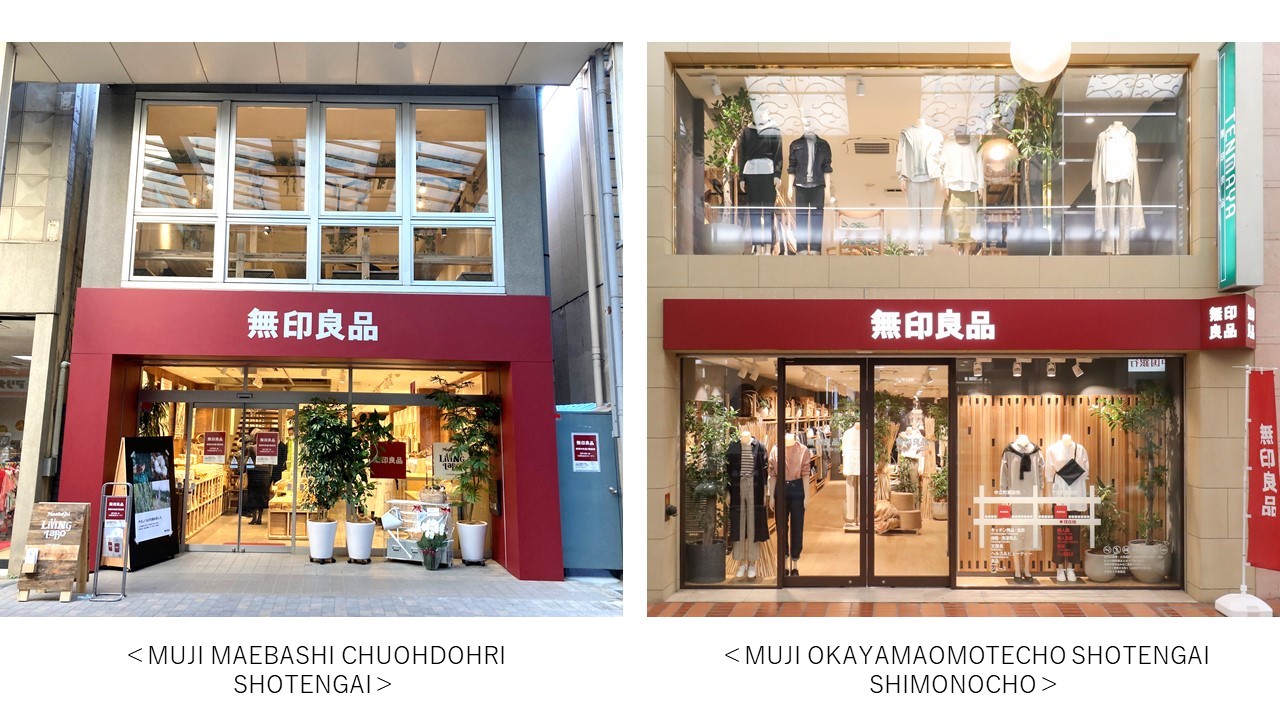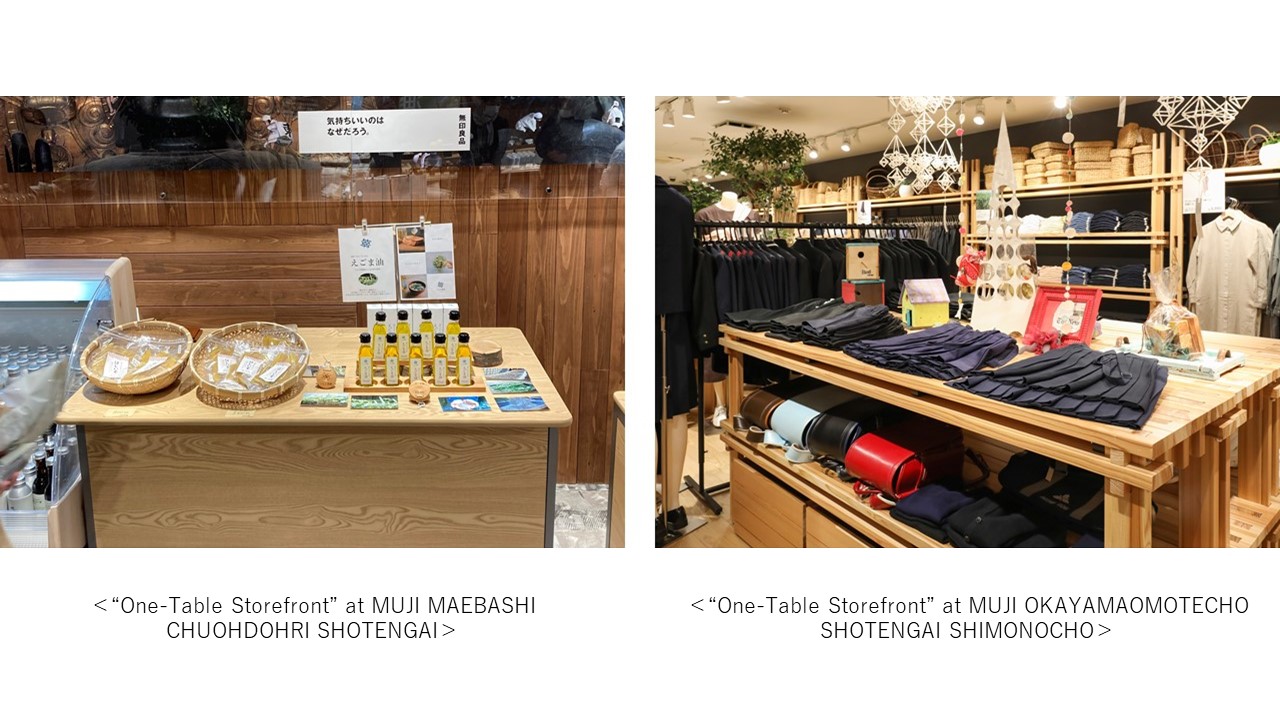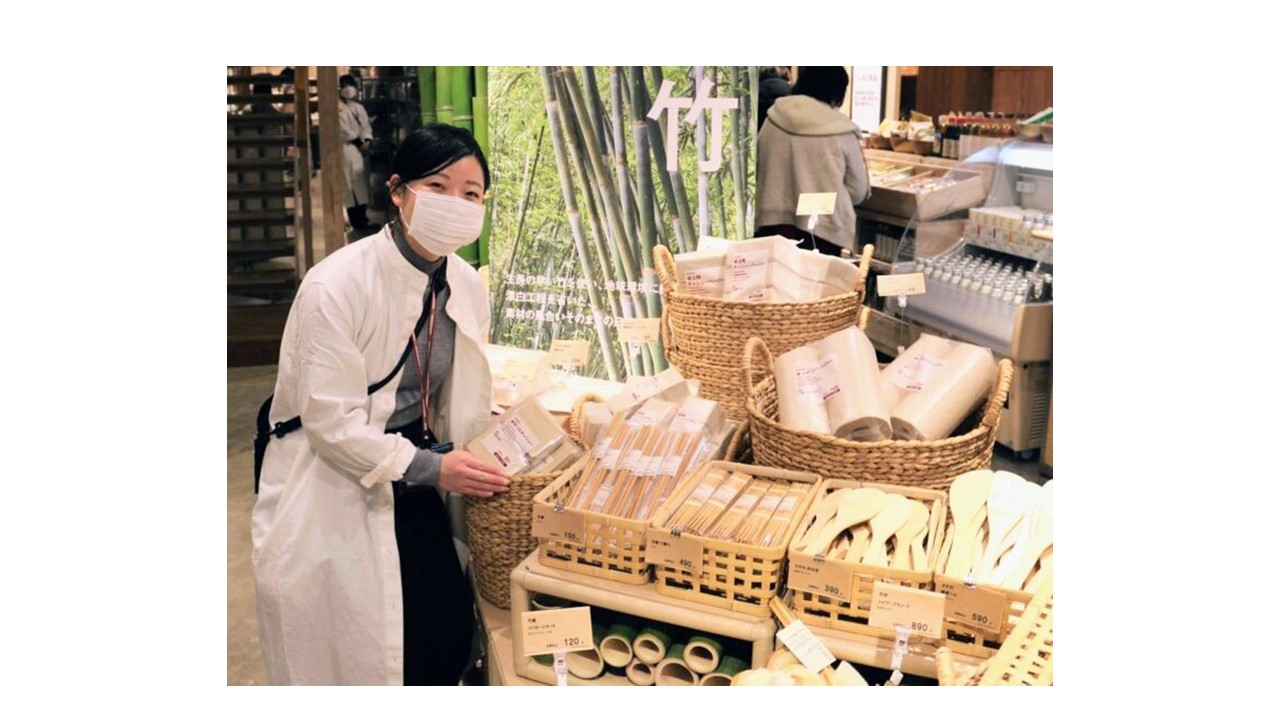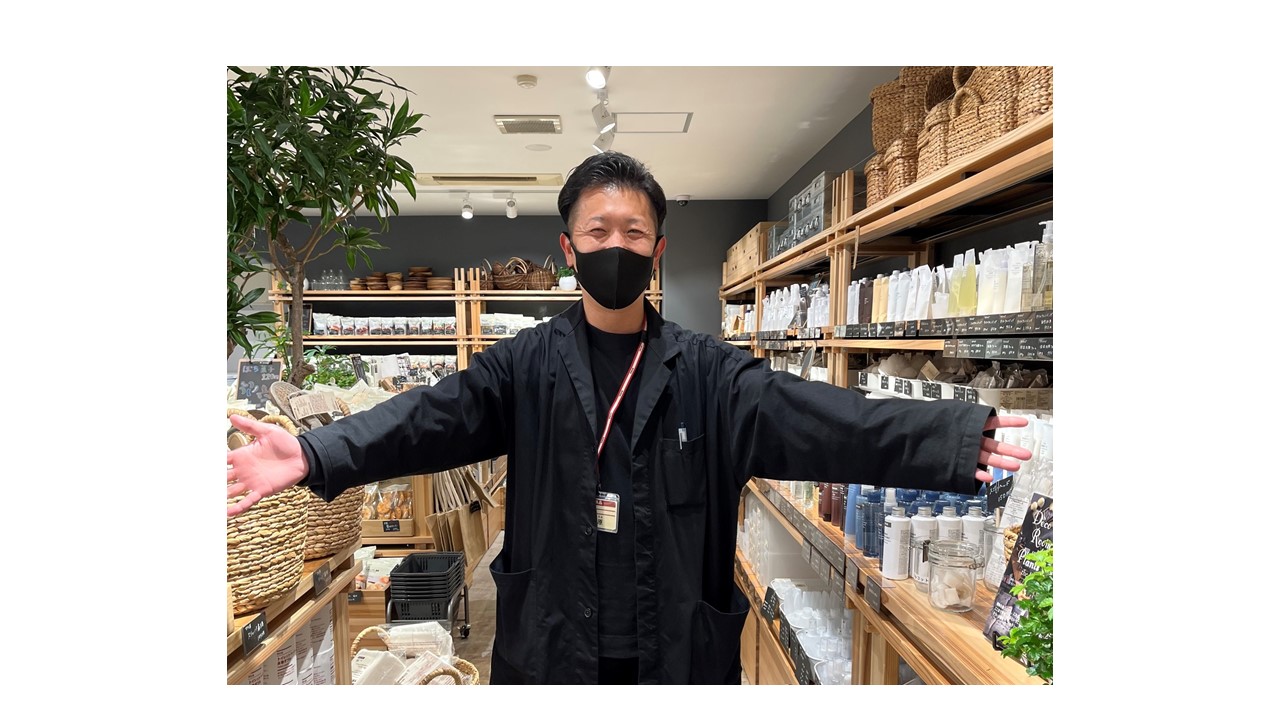
"Shopping Street Revitalization Project" Begins in Maebashi and Okayama Cities, Helping Local Communities Flourish Once More
Ryohinkeikaku is excited to kick off its new effort to revitalize shopping streets in local communities in Japan with the opening of three new stores this spring: MUJI MAEBASHI CHUOHDOHRI SHOTENGAI in Maebashi City, Gunma Prefecture, and the SHIMONOCHO and NAKANOCHO storefronts that together make up MUJI OKAYAMAOMOTECHO SHOTENGAI in Okayama City, Okayama Prefecture.
For many local communities in Japan, downtown shopping streets have long served as hearts of commercial activities and cornerstones of their communities, usually teeming with residents out to enjoy a day of shopping and dining. Today, however, many of those streets have grown quiet. Aging proprietors, deteriorating buildings, and a lack of new tenant applications have led to the closing of numerous storefronts, only for the commercial space to sit unused. Recognizing this issue and the impact it is having on communities across the country, Ryohinkeikaku formulated its “Shopping Street Revitalization Project,” which seeks to help these commercial districts flourish again through the opening of new MUJI retail stores.
■A New Phase in Our Commitment to Local Communities
The “Shopping Street Revitalization Project” is a new initiative wherein MUJI stores are established in struggling commercial districts in local communities in Japan, where they serve as bases for collaboration with local residents. Through these stores, we aim to assist communities in resolving the issues that face shopping streets today, and help revitalize their local economies. We see this project as a significant step in furthering one of our primary corporate missions, which is to have a positive impact on each region by operating stores that serve as community centers, sharing concerns and values with local residents, and collaborating with them to tackle local issues. These shopping streets once served as cornerstones of their community, where local businesses thrived and supported residents’ lives. We are eager to see them thrive once more, repopulated by a new generation of local producers and business ventures, helping local industries flourish and spurring their economies back into motion.
■Tale on the Structural Challenge of Rising Unused Commercial Space
Daisaku Takasuga, General Manager of Ryohinkeikaku’s Social Good Business Unit and head of the “Shopping Street Revitalization Project,” discussed some possible reasons behind the many empty storefronts now observed in these once thriving areas. “The buildings themselves often have aged and significant maintenance work would be needed to return them to an appropriate condition to rent out. In other cases, the property owner’s drive to seek out new tenants has waned,” he said. “As a result, many of the properties along these streets are not easily available to new tenants, and this reduced ability to attract new businesses and match them to appropriate spaces, leading to lots of commercial real estate going unused. The number of shops decreases, the streets no longer serve as a convenient one-stop location for daily necessities, and local residents start to shop elsewhere, perpetuating the cycle.”
By opening MUJI stores at these locations, with our usual wide range of daily essentials, we hope to end this cycle, enticing consumers back to the shopping streets and serving as a hub for collaboration with local residents in resolving these and other issues they may face.
●A New Initiative to Encourage Businesses Considering Stores along Shopping Streets
As part of our effort to support small business owners and facilitate a robust local start-up culture, our new MUJI MAEBASHI CHUOHDOHRI SHOTENGAI and MUJI OKAYAMAOMOTECHO SHOTENGAI SHIMONOCHO locations each include a dedicated sales area available for rent by local producers. This system, which we call our “one-table storefront” (in Japanese, “hitotsubo kaigyou”), was born out of early surveys conducted to better understand the factors dissuading local business owners from opening stores along these shopping streets. Common concerns included “the additional uncertainty that comes with having a physical store,” “the size of properties available to rent being unnecessarily large for a new start-up,” and “a hesitance to commit to the idea because of the large initial investment.” We quickly realized that we had an opportunity to alleviate some of these expressed anxieties and help producers and business owners evaluate the market for their goods, by providing a space in our new MUJI locations for short-term test runs of physical sales. In doing this, we aim to enlarge the market for local goods with an emphasis on primary and secondary industries, to see more proprietors in new generations, and ultimately, to encourage an eventual return of businesses to shopping streets where we operate. At our Maebashi location, the first business to make use of this “one-table storefront” system is Komuro Nouen, a local producer of perilla oil and other agricultural products. At our Okayama location, our first guest is VAST Ltd., a retailer of Japanese-style pants made from denim produced locally in Okayama prefecture, and the operator of LOOP, which specializes in secondhand sales of school uniforms and supplies.

■Cooperating with Local Residents to Breathe New Life into Shopping Streets
In the lead-up to the opening of these three locations, we received numerous comments from proprietors and property owners along the Maebashi and Okayama shopping streets, discussing the high hopes they have for our new initiative. One expressed excitement over the possibility that our presence would invite the interest of other retailers, who may be more inclined to open stores in these locations. Another spoke of the interest the new MUJI locations would likely generate, drawing more shoppers to the area and consequently leading to renewed interest among business owners in the commercial space itself. Moving forward, the Maebashi location plans to utilize its official blog to introduce neighboring businesses and proprietors, and to find new opportunities to collaborate with the shopping street community as a whole. The Okayama locations have plans to partner with local universities and realtors in widening efforts to find new purposes for currently-unused commercial spaces.
Reference:
News Release (Japanese only)
Fri./Feb/10th ”MUJI MAEBASHI CHUOHDOHRI SHOTENGAI” Open
https://www.ryohin-keikaku.jp/news/2023_0209.html
Fri./Marh/31th “MUJI OKAYAMA OMOTECHO SHOTENGAI SHIMONOCHO/NAKANOCHO” Open
https://www.ryohin-keikaku.jp/news/2023_0330.html
Store Blog(Japanese only)
MUJI MAEBASHI CHUOHDOHRI SHOTENGAI
https://www.muji.com/jp/ja/shop/046756/articles
MUJI OKAYAMA OMOTECHO SHOTENGAI
https://www.muji.com/jp/ja/shop/046764/articles
■Comments from Store Managers

Ms. Kae Shimoda, Store Manager of MUJI MAEBASHI CHUOHDOHRI SHOTENGAI
We are committed to creating an inviting and easy-to-use shopping environment, aspiring to be a store loved by the community for providing superior service and careful attention to our customers’ concerns. As part of our drive to get to know our new neighbors and find ways for us to better serve the community, we are also excited to get involved in local traditions, including this summer’s Maebashi Tanabata Festival, one of Maebashi’s three major celebrations of the year.

Mr. Takahito Ebihara, Store Manager of MUJI OKAYAMAOMOTECHO SHOTENGAI
It is our desire to help make daily life as convenient as possible for our customers, by making the most of our limited space, fostering open communications through client contact, and offering a carefully-selected assortment of products. Our eyes are firmly on the various medium- to long-term efforts for our community members, thereby contributing to the local revitalization.

